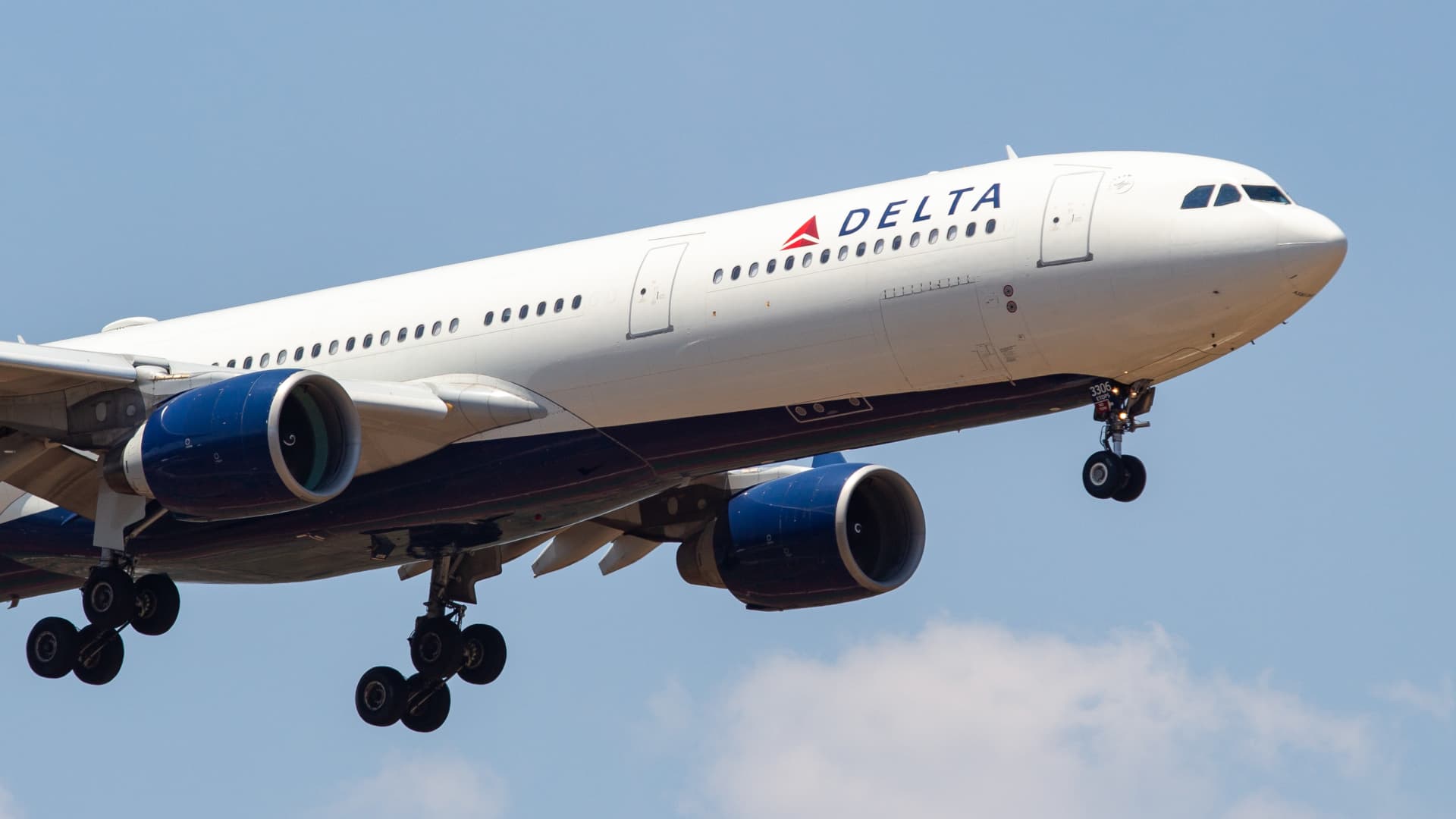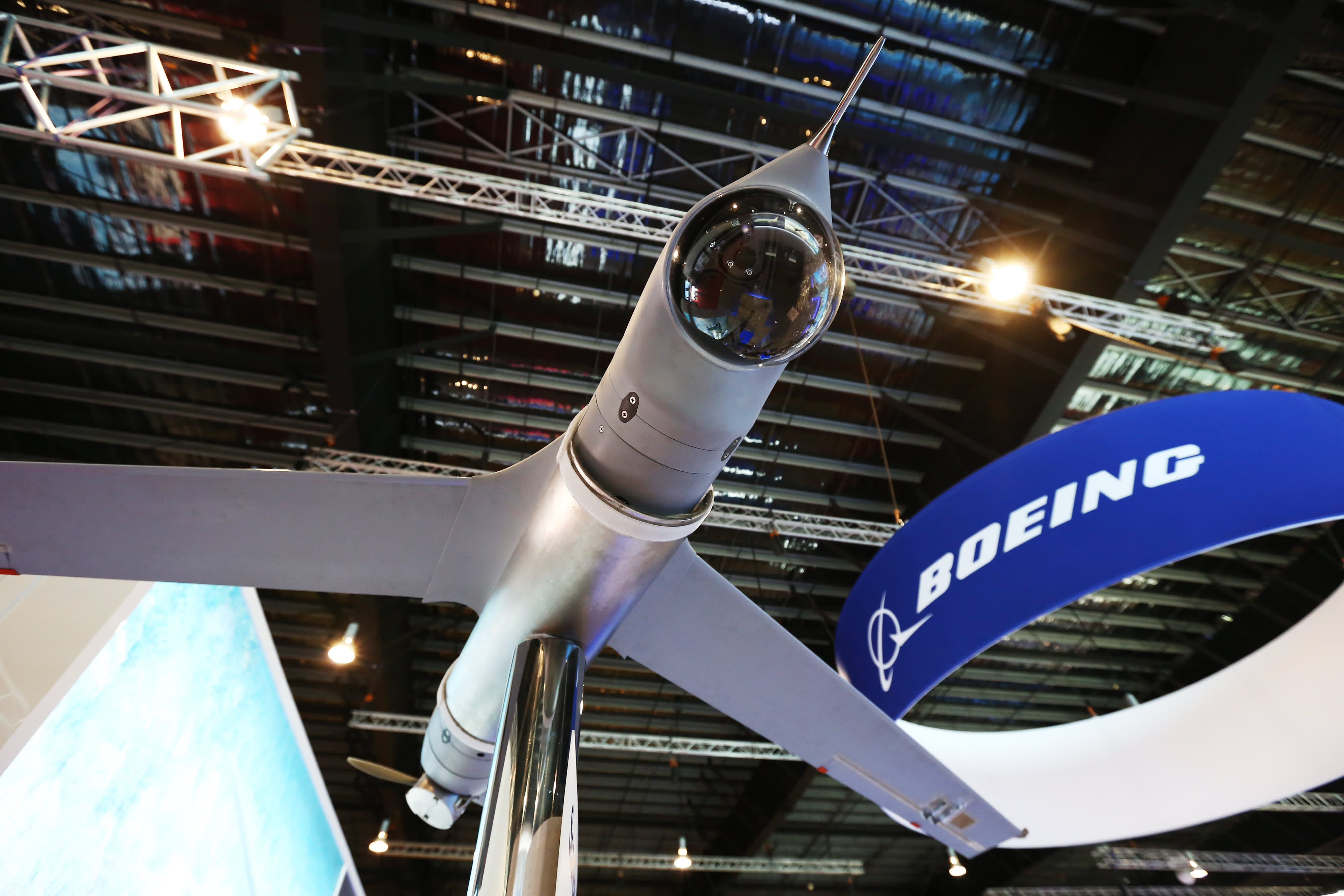Delta Air Lines says the travel boom isn’t over.
The airline expects its adjusted earnings to nearly double to as much as $6 per share next year, above analysts’ estimates. It forecast a 15% to 20% jump in revenue in 2023 from this year, which is expected to bring in roughly $45.5 billion.
related investing news
Free cash flow will likely rise from more than $2 billion next year to more than $4 billion in 2024, a sharp turnaround from 2020 when Delta posted a record loss. Delta is planning to pay down more of its debt over the next two years.
Delta and other airline executives in recent weeks have been upbeat about a recovery in travel demand, despite warnings from other industries about economic weakness ahead.
“We’ve seen our recession,” CEO Ed Bastian said in an interview. “Consumers are prioritizing their spend, where they’re making choices, and they’re prioritizing investing in themselves and experience.”
Delta on Wednesday raised its fourth-quarter earnings forecast to a range of $1.35 to $1.40 a share, up from its previous outlook of $1 to $1.25 per share. It expects total revenue to come in 7% to 8% higher than the fourth quarter of 2019, before the Covid pandemic.
Shares of Delta rose almost 2.8% on Wednesday to close at $34.31, while the broader market fell. Delta’s shares are off 12% this year.
The U.S. airline industry returned to profitability this year thanks to a sharp rebound in travel demand and consumers’ willingness to pay higher fares, which helped carriers more than make up for increased costs like fuel.
Airlines have cut some routes and been forced to scale back their planned capacity growth, which has kept fares firm. Supply chain and labor constraints have delayed deliveries of new aircraft, and airlines continue to struggle with a shortage of trained pilots.
Bastian told CNBC that business travel is about 80% recovered to 2019 levels, with demand from smaller businesses even stronger than before the pandemic.
“It’s never going to return to what it was like but there are going to be new forms of travel that are going to supplement that,” he said.
Some carriers have warned about moderating growth or pockets of weakness in the business.
United Airlines CEO Scott Kirby last week said that business travel demand has “plateaued” but that revenue is still rising. Alaska Airlines said in a filing on Tuesday that demand is good for the fourth quarter, though it flagged a “modest softening in corporate travel bookings.”
And JetBlue Airways, said the “very strong” last-minute demand it was expecting in December “has materialized below expectations.”
But for Delta, bookings remain strong into early 2023, Bastian said.
Delta has been more conservative than some of its competitors in bringing back capacity but the Atlanta-based carrier aims to have its network restored to 2019 levels next summer.
Airfare in the U.S. has eased from peaks hit earlier this year but prices are still well above 2021 levels.
A restoration of capacity will likely “take a little bit of pressure off the fare mix,” but strong demand will continue to boost revenues, Bastian said.


